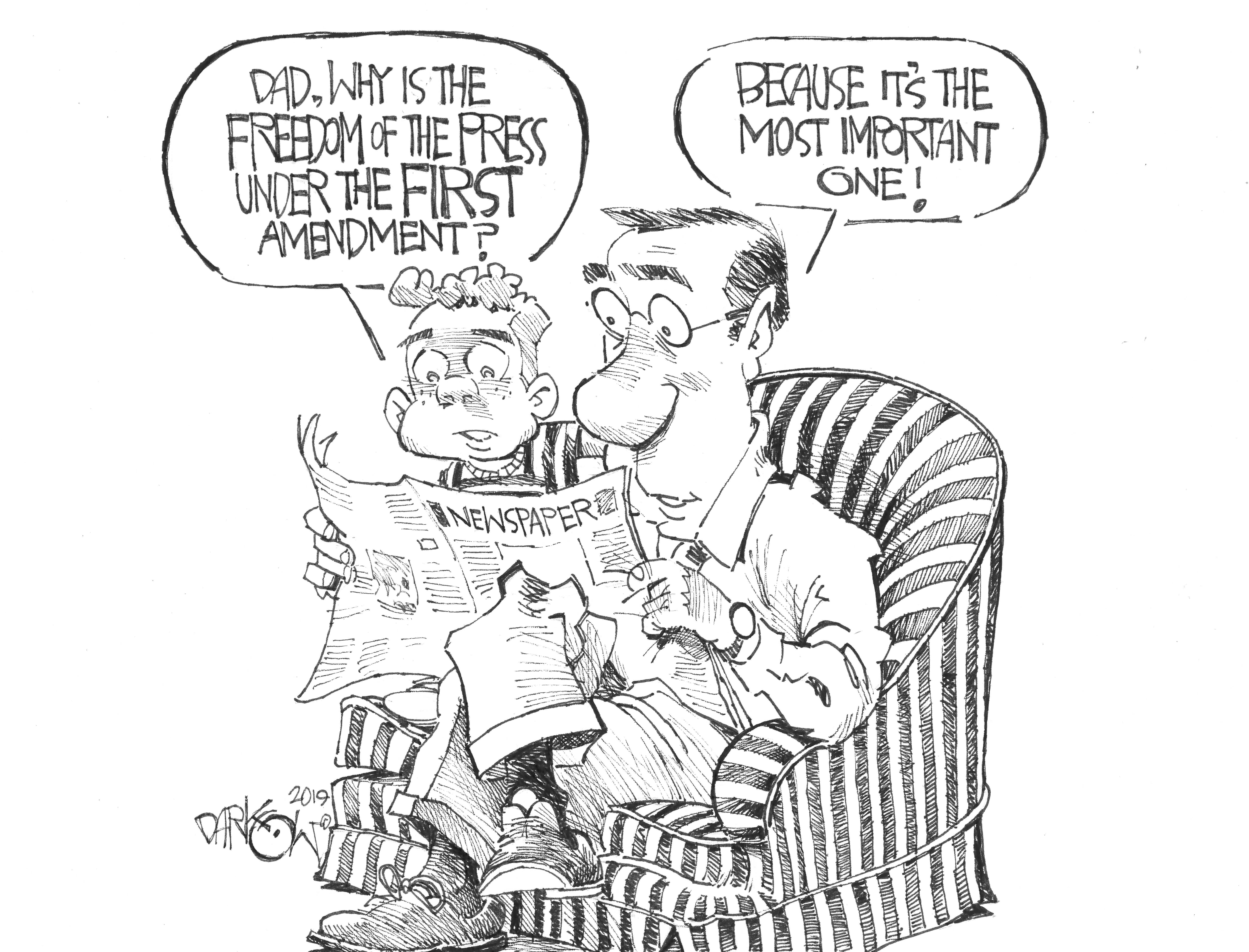Popularity less important than problems
Published 4:12 pm Wednesday, January 16, 2013
As we witnessed in the November election, Americans are almost evenly divided down political lines, yet the one area in which they seem to be in near total agreement is their disdain for Congress. A recent survey by Public Policy Polling found that 85 percent of voters disapprove of the legislative branch of government. In fact, those surveyed strongly preferred colonoscopies to the collective inhabitants of the U.S. House and Senate.
To be fair, over the history of our country, federal lawmakers have never really enjoyed popular approval for very long. Political humorist Will Rogers observed that America is safer when Congress is not in session.
Opinion poll after opinion poll has cited Congress’s inability to reach agreements as the reason most Americans hold it in such disregard. The recent 11th hour vote on the fiscal cliff is but the latest example. Again, disagreement and inaction in Congress is nothing new. Thomas Jefferson even lamented legislative gridlock: “If the present Congress errs in too much talking, how can it be otherwise in a body to which the people send one hundred and fifty lawyers, whose trade it is to question everything, yield nothing and talk by the hour?”
However, should Americans really be surprised that their members of Congress are often at odds with one another when polling reflects the population to be similarly split over key policy decisions such as tax cuts for all and government overspending? And division doesn’t end with Congress. President Obama remains absolutely opposed to working with conservatives in Congress to address the country’s most pressing problem – the crippling debt.
Last week, I was sworn in as your representative to the 113th Congress. I am honored and humbled by the trust and expectations that you place in me to work on your behalf as the nation faces some of the toughest decisions in recent history. Unfortunately, the New Year’s Day drama over the fiscal cliff is likely to set the tone for the new Congress, as equally serious decisions must be made in the coming months over deep cuts in defense and other government programs, as well as the debt ceiling.
To illustrate the policy gulf that separates President Obama and the Republican Congress going into more negotiations over the country’s financial health, The Wall Street Journal reported last week that the president still refuses to budge from his quest to expand our already bloated federal government. In a recent interview, Speaker Boehner confided that during face-to-face negotiations, President Obama proclaimed, “We don’t have a spending problem.” For each of the four years he has been president, Mr. Obama has presided over annual budget deficits exceeding $1 trillion and his first term of office has seen our national debt increase to a record $16 trillion.
Mr. Obama’s blunt refusal to acknowledge the country’s crisis of government overspending is also shared by his chief supporters in Congress. Last week, House Minority Leader Nancy Pelosi lamented that the recent fiscal cliff deal did not raise taxes enough. Even if taxes are raised on all Americans, it would not fully address the enormity of the debt our country faces due to years of overspending, which have been made worse by Mr. Obama’s failed stimulus spending and his expansion of government, including Obamacare.
Sadly, the president is not only in denial about the true nature of the crisis facing our country, but he is not being honest with the American people about the steps needed to correct it. Tax hikes will do little to stem the tidal wave of debt that is cresting over our land. Going forward, House Republicans are demanding substantial and sustained spending cuts, and reforms to mandatory spending to protect Social Security and Medicare.
I opposed the fiscal cliff deal because it raised taxes and did not cut one penny in federal spending. I will continue to oppose any agreement that does not address the root cause of our government’s historic debt — rampant overspending. If doing so makes Congress less popular than the plague, that is a small price to pay for the futures of our children and grandchildren.


